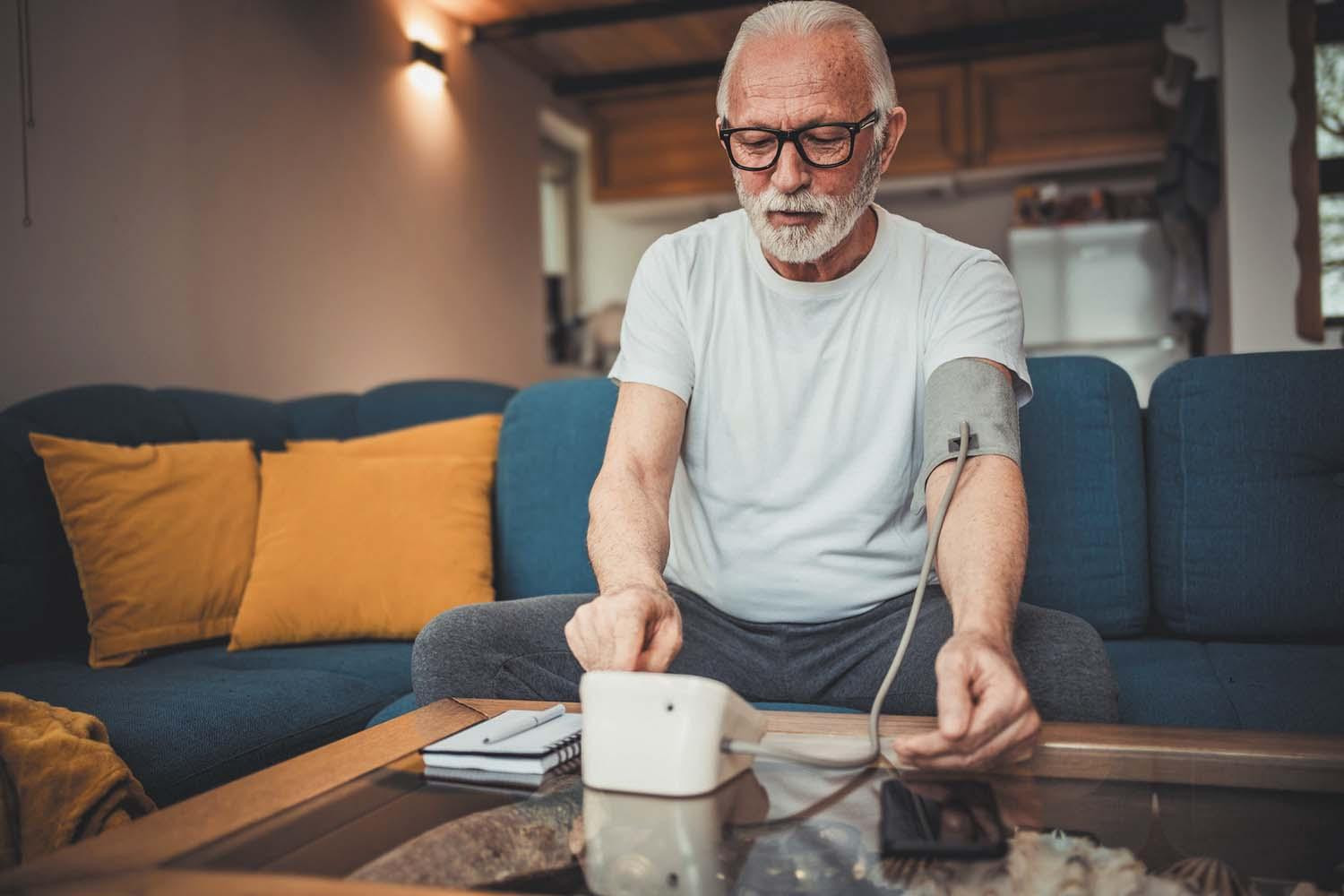
New thinking about plaque in arteries that feed the brain

Want to prevent shifting teeth? Maybe you need retainers

New evidence that polyphenol-rich foods help the heart

What you need to know about the new dietary guidelines

Food that’s healthier for people and planet can be cheaper, too

What are somatic workouts?

How to curb your stress eating

8 simple ways to reduce ultra-processed foods in your diet

How to spot Parkinson’s disease symptoms

Heart failure symptoms in women: How they’re different
Diet & Weight Loss Archive
Articles
Take back your blood pressure control!
When blood pressure remains high despite treatment, making certain lifestyle changes can help. Examples include reducing dietary sodium and increasing dietary potassium, losing weight, limiting alcohol intake to no more than one drink per day, exercising (doing aerobics and strength training), using tools that improve medication adherence (such as an automatic pill dispenser, a medication diary, a smartphone alarm, or a reminder app), quitting smoking, getting more sleep, managing stress, and reducing caffeine intake.
Cushing's: A master of disguise
Cushing's is marked by elevated blood levels of the hormone cortisol. Far more common in women, the condition is categorized as a disease or syndrome based on what factors trigger it, which can include using corticosteroids or having a tumor on the brain's pituitary gland or elsewhere. Symptoms include a swollen face, excess belly weight, fatigue, a fatty hump between the shoulders, stretch marks, easy bruising, and slow wound healing. Cushing's can also lead to health problems such as cardiovascular disease, bone loss, and diabetes.
Water aerobics tied to weight loss and a smaller waist
A 2025 review of 10 randomized controlled trials (involving about 300 people) found that those who took part in two or three one-hour water aerobics classes weekly for at least 10 weeks lost up to 6 pounds and trimmed their waists by about an inch.
Why exercise if I'm not losing weight?
Some people may feel like it's pointless to exercise if they're not losing weight as a result. But there are many reasons to exercise beyond weight loss. Regular exercise has a long list of health benefits, including an energy boost, better sleep, and reduced risks for addictive behaviors as well as many chronic diseases such as heart disease, strokes, many cancers, dementia (including Alzheimer's disease), diabetes, depression, anxiety, pneumonia, osteoporosis, and kidney problems.
Navigating "male menopause"
During midlife and later, men often experience a lower energy level, sour mood, and decline in sex drive. These changes have been tagged with the term "male menopause." A low testosterone level may be a factor. Lifestyle changes, such as losing weight, increasing exercise, and following healthy sleep patterns, can help raise low levels. Another option is testosterone replacement therapy, but men need to weigh the possible benefits versus the risks.
How much aerobic exercise does it take to lose weight?
In a 2024 study of more than 183,000 middle-aged healthy people followed for 13 years, those who closely followed a plant-based diet had lower risks of developing blood clots in the legs or lungs, even if their genes made them more likely to get the blood clots.
How well does body mass index correlate with excess fat?
Body mass index (BMI) uses weight and height to calculate whether a person is overweight or obese. However, it cannot determine the amount of visceral fat that lies deep inside the body. Two better methods are measuring waist size and determining waist-to-hip ratio.
When aging steals hunger
Anorexia of aging affects about one-quarter of older adults, and women more often than men. The condition is marked by diminished appetite and can prompt a breakdown of muscle and bone mass that can lead to frailty, falls, delayed recovery from illness or surgery, and earlier death. Risk factors include changes in smell and taste, swallowing problems, slower digestion, medications that lead to dry mouth, dental problems, cognitive decline, and loneliness or social isolation. Treatments can include exercising, boosting protein intake, and medications.
More water may equate to more health benefits
A 2024 research review suggested that drinking more water can help people stave off a variety of health problems as well as promote weight loss.

New thinking about plaque in arteries that feed the brain

Want to prevent shifting teeth? Maybe you need retainers

New evidence that polyphenol-rich foods help the heart

What you need to know about the new dietary guidelines

Food that’s healthier for people and planet can be cheaper, too

What are somatic workouts?

How to curb your stress eating

8 simple ways to reduce ultra-processed foods in your diet

How to spot Parkinson’s disease symptoms

Heart failure symptoms in women: How they’re different
Free Healthbeat Signup
Get the latest in health news delivered to your inbox!
Sign Up











